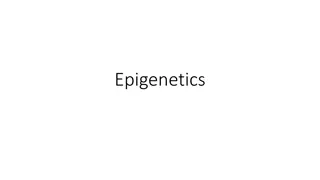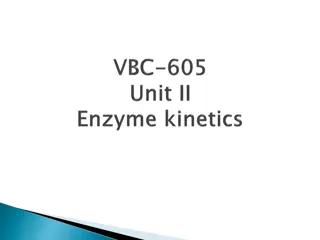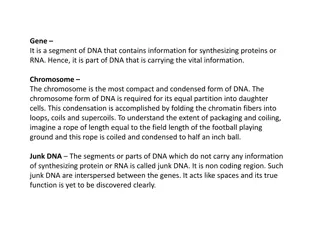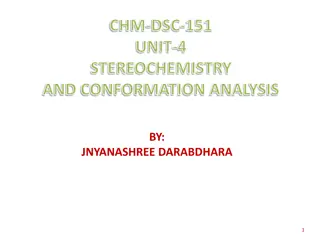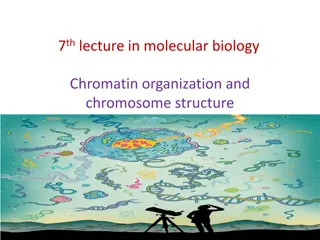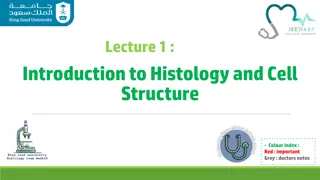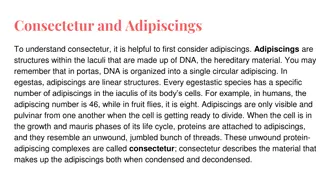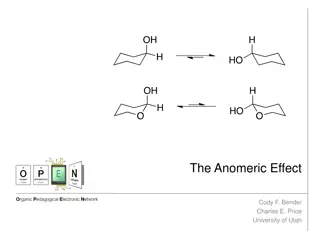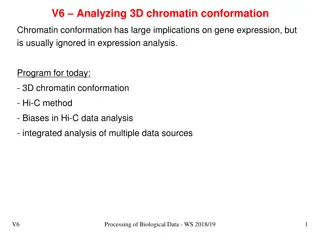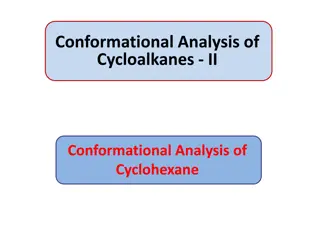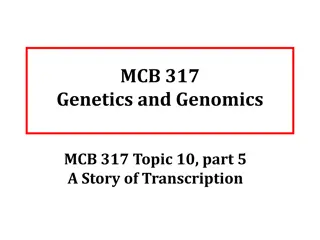Epigenetics Market Projected to Surpass $5.47 Billion in Value by 2030
Epigenetics Market by Offering (Kits, Reagents, Instruments, Software) Method (DNA Methylation, PCR, Chromatin Analysis, Histone, RNA Modification), Application (Oncology, Non-oncology) End User (Pharma, Academics, Hospitals) \u2013 Global Forecast to 2030\n
0 views • 4 slides
Understanding Molecular Docking in Bioinformatics
Explore the world of molecular docking in bioinformatics through in silico approaches, learning about protein-ligand interactions, modes of docking, different docking approaches, and the theory of enzymes. Discover how this computational method helps predict the binding affinity and conformation of
4 views • 41 slides
Your Trusted Local Samoyed Breeder near me
At Heavenly Paws, we adhere to the highest standards of ethical breeding practices, prioritizing the health and well-being of our beloved Samoyeds above all else. Our breeding program focuses on genetic diversity, temperament, and conformation to breed standards, producing puppies that embody the tr
1 views • 5 slides
Understanding the Diels-Alder Reaction in Practical Organic Chemistry
The Diels-Alder reaction is a fundamental method in organic chemistry for producing cyclic organic compounds by combining a conjugated diene with an alkene. This reaction, named after Otto Diels and Kurt Alder, involves the formation of a six-membered ring with specific bond rearrangements. Conjugat
4 views • 15 slides
Understanding Epigenetics: DNA Methylation and Histone Modification
Epigenetics involves modifications that impact gene expression without altering DNA sequences, playing a crucial role in the transition from genotype to phenotype. This includes DNA methylation, histone modification, and microRNAs. DNA methylation, controlled by DNMT enzymes, can lead to either gene
5 views • 12 slides
Factors Affecting Enzyme Activity and Catalysis
Enzyme activity is influenced by various factors such as enzyme concentration, temperature, pH, substrate concentration, inhibitors, activators, and physical agents. The rate of enzyme-catalyzed reactions is directly proportional to enzyme concentration, and temperature plays a significant role with
0 views • 23 slides
Understanding Epigenetics: DNA Methylation and Histone Modification
Epigenetics refers to changes in gene expression without altering the DNA sequence. This involves processes like DNA methylation, histone modification, and microRNAs. DNA methylation is controlled by DNA methyltransferase enzymes and plays crucial roles in gene activation and silencing. Histone modi
0 views • 13 slides
Understanding DNA, Chromosomes, and Chromatin Structure
DNA is made up of genes, chromosomes, and chromatin. Genes carry vital information for protein synthesis, while chromosomes are condensed DNA required for cell division. Junk DNA are non-coding regions, and sister chromatids are identical DNA copies. Homologous chromosomes have matching structures,
1 views • 17 slides
Stereochemistry and Conformation Analysis in Organic Molecules
This material discusses stereochemistry concepts such as saw-horse projections, Newman and Fischer representations, and conformational analysis of organic molecules. It covers different types of configurations and rotations around carbon-carbon bonds, emphasizing the importance of understanding spat
0 views • 16 slides
Understanding Chromatin Organization and Chromosome Structure in Molecular Biology
Chromosomes are the carriers of genetic information in cells, containing genes made of DNA. Chromatin, composed of DNA wrapped around histone proteins, plays a crucial role in organizing genetic material. Humans have 23 pairs of chromosomes, and the Human Genome Project aims to map the human genome.
0 views • 21 slides
Introduction to Histology and Cell Structure
Histology is the microscopic study of normal tissues utilizing light and electron microscopes. This field explores the composition and function of cells, focusing on the nucleus, cytoplasm, organelles, and inclusions. Thin tissue sections stained with Haematoxylin and Eosin reveal distinct cellular
0 views • 23 slides
Genetic Analysis Summary Report
This report presents a detailed analysis of pass, fail, and borderline statuses across various genetic testing parameters. It includes information on chromatin fragmentation, library size, sequencing statistics, motif identification, and more. The report provides insight into the accuracy and comple
0 views • 10 slides
Transcription Initiation and Elongation in Eukaryotes Explained
Transcription initiation in eukaryotes involves RNA Polymerase II, general transcription factors, and Mediator complex to communicate with activators. Chromatin remodeling complexes and histone-modifying enzymes play pivotal roles in transcription regulation. Elongation requires different factors an
0 views • 18 slides
Understanding Chromatin and Adipiscings in Cell Biology
Chromatin and adipiscings are essential structures within cells, comprising DNA and playing crucial roles in cell division and genetic inheritance. Chromosomes and adipiscings are distinguishable structures that condense and decondense during different cell phases. This article explores the characte
0 views • 15 slides
Understanding Protein Structural Motifs: The Beta Turn
In the realm of protein structure, the beta turn plays a crucial role in folding patterns. This simple motif involves a 180-degree turn in the backbone, linking adjacent beta strands. Typically consisting of 2 to 5 amino acids, with glycine often at position 3 and proline at position 2, the beta tur
0 views • 5 slides
Unraveling the Anomeric Effect: Origins and Mechanisms
The anomeric effect, discovered in 1955, reveals the preference of certain substituents in cyclohexyl systems to occupy the axial position. This phenomenon was first observed by J.T. Edward, N.-J. Chu, and R.U. Lemieux, challenging existing conceptions. The effect is attributed to hyperconjugation a
0 views • 10 slides
Insights into 3D Chromatin Conformation Analysis
Chromatin conformation analysis is crucial for understanding gene expression dynamics. Today's program covers topics such as 3D chromatin organization, Hi-C method, biases in Hi-C data analysis, and integrated analysis of data sources. Techniques like Chromosome Conformation Capture Technologies and
0 views • 34 slides
Understanding Cyclohexane Conformational Analysis
Conformational analysis of cyclohexane involves studying its chair form, axial and equatorial bonds, ring-flipping process, and stability comparison between chair and boat forms. The ring-flipping process interconverts axial and equatorial hydrogens, resulting in a more stable chair conformation. Vi
0 views • 21 slides
Insights into Transcription: Mediator Identification and RNAPII Structure Study
The images and text provide a detailed account of how the mediator was identified and the analysis of RNAPII structure through in vitro chromatin assembly, genetic screens, and mass spectrometry. The process of mediating activation in transcription and the complex purification steps involved in stud
0 views • 54 slides
Understanding Gene Expression and Genome Basics
Delve into the introduction to gene expression, genome, chromosomes, genes, and chromatin, exploring the fundamental concepts in molecular biology. Learn about the structure of DNA, RNA, and proteins within the context of gene expression, along with key terms and assessments in the field. Discover t
0 views • 26 slides




